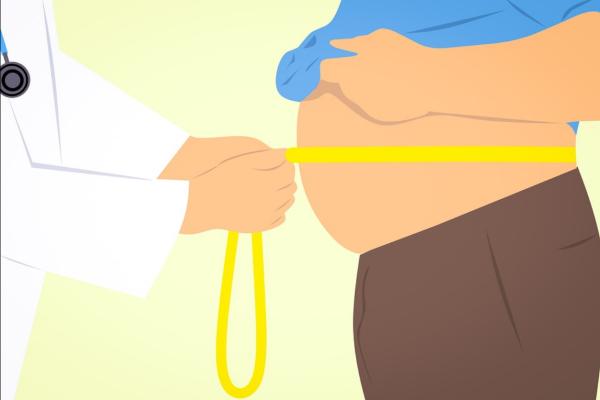As the world gets fatter, we’re putting less effort into effectively preventing and treating obesity. The evidence of this horrifying correlation is everywhere. Doctors are pressured not to weigh their patients; mental health professionals demand we stop recommending lifestyle changes to obese patients; reporters declare that the very definition of “obesity” was constructed to discriminate against fat people. As a society, we’re perilously close to flatly denying that excessive weight gain is dangerous.
We took another step toward that troubling conclusion late last month when The National Consumers League and National Council on Aging, with the support of some 38 public health organizations, published “The Obesity Bill of Rights.” The 10-page document is a cynical attempt to frame obesity as a chronic but treatable disease and appease fat-acceptance advocates who want to normalize obesity.
In short, it’s a confused, contradictory project that subverts its stated goal.
You have a right…to be a victim.
The eight-point “bill of rights” really boils down to three statements: obese patients have a right to respect from health care providers, accurate information about their “disease,” and personalized treatment. [1] Strictly speaking, there’s not much wrong with these claims. Doctors should treat their patients respectfully and individually – a certain diet or medicine may be appropriate for one person but not another – and health insurers should cover medically necessary obesity treatments.
The ultimate problem with the document is one of framing. Because the fat-acceptance movement has ballooned into a powerful cultural force, the public health establishment has ensconced its anti-obesity messaging in social justice rhetoric to make it more palatable. The obesity bill of rights is no exception, complaining about “pervasive weight bias,“ “ageism,” and “discrimination” aimed at fat people, especially in “communities of color.”
The decision to echo this anti-discrimination narrative is understandable but foolish because fat-acceptance activists are adamantly opposed to “medicalizing” obesity. Their goal, as I’ve noted before, is to undermine the recommendation “that fat people could (and should) lose weight,” writes self-styled “fat activist” Marilyn Wann. If you embrace that idea – as the obesity bill of rights does – “your approach is aligned with ‘obesity' researchers, bariatric surgeons, public health officials who declare 'war on obesity,'” she adds.
Helpfully proving my point, the pro-fat brigade attacked the obesity bill of rights the day it was released. They accused its authors of covertly shilling diet plans and obesity drugs on behalf of their donors. The media was all too happy to amplify these complaints. Consider this USA Today story:
“Tigress Osborn agrees patients like her should be granted more respect … But Osborn, board chair of the National Association to Advance Fat Acceptance [NAAFA] … is suspicious of the groups involved in the new bill of rights and the framing of their approach.
‘All of this feels like astroturfing, because it is,’ she said … Many of the organizations supporting the bill are backed by drug companies that make weight loss medications or are in the weight loss business themselves, Osborn noted.
All of the language in the bill is around caring for someone's obesity, not the person, she said … Osborn asked, what about their health needs that aren't related to obesity? [my emphasis]
In line with the broader fat-acceptance movement, Osborn attacked the credibility of the groups behind the bill of rights and tried to shift the focus away from the health effects of obesity. A quick look at NAAFA's website confirms that her group has no interest in preventing or treating the health effects of harmful weight gain. While they have no plan to reduce the excess mortality caused by obesity, they do have a “size freedom” campaign. They also recommend products that will heal “a split above your butt crack” and reduce the discomfort caused by “itchy stretch marks.” There is zero sense in health and science groups trying to make common cause with such an organization.
What’s the solution?
My purpose isn’t to mock fat people. I was obese for most of my teenage and young adult years; I still struggle every day to maintain healthy eating and exercise habits. But I lost the excess weight because I went on a sustainable diet, and I had a parent and a doctor who told me the truth: I was courting several debilitating diseases and early death.
Blaming “pervasive weight bias” or any other external factor, be it soda or school lunches, isn’t the solution to our collective weight problem. We know that doesn’t work. Rather, the answer combines evidence-based advice and treatment for individual patients. That could be as simple as nutrition counseling in one case and a weight-loss drug like Wegovy in another. That customized approach absolutely does work.
There’s no need for apologies, a bill of rights, or any other ideological gibberish. Just give patients the information they need, support their access to treatment, and–most importantly–stop placating activists who want to see you fail. You’re undermining your efforts to help people lead healthier lives.
[1] Classifying obesity as a disease is a topic for another day. See this story for more.




